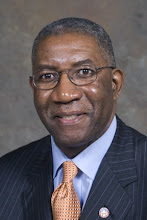Lessons from Florida v. George Zimmerman
Much has already been said and written in numerous venues about the killing of Trayvon Martin, the seventeen year-old unarmed black Florida youth by George Zimmerman and Zimmerman's recent acquittal of all charges (second-degree murder and manslaughter) by a six-person jury in Sanford, Florida. As someone who has been involved with law and cultural competency for many years, I've been interested in what has not been said, what was not done, and what the trial of Florida v. Zimmerman indicates about the extent to which the legal profession remains unskilled in addressing cross-cultural realities in litigation.
One wonders how, in 2013, a six-person jury was selected that included no African-Americans in Seminole County, Florida. One wonders how and why the prosecution team did not address the reality of racial profiling, racial prejudice, and racial stereotypes during jury selection in order to be able to intelligently decide whether to challenge prospective jurors for cause on account of racial prejudice, or to exercise peremptory challenges for prospective jurors considered unacceptable. One wonders whether the prosecution team included anyone skilled in cultural competency and inclusion.
We may never know the true answers to these questions. Whatever the answers may be, they cannot change the trial outcome. The time for those questions to have been considered and answered was at the outset of the prosecution. The Trayvon Martin homicide case involved cross-cultural issues at every turn. It appears that the prosecution team resorted to the age-old mistake many lawyers continue to make of thinking that law is color-blind and that such color-blindness is an asset to achieving just outcomes in legal disputes.
However, law is not color-blind. Law, as the great Supreme Court Justice Oliver Wendell Holmes famously said, is about experience. Culturally competent law practice requires that one understand societal realities and experiences and the legal implications they evoke. To do otherwise is to engage in wishful thinking at best. At worse, taking a "color-blind" approach to law in a legal dispute with cross-cultural issues amounts to cultural incompetence, however skilled the lawyer might otherwise be viewed.
Cultural competence, like competence in any other field, involves two essential components: knowledge and skill. Blindness is a disability, not a skill. Unfortunately, American law schools do not teach courses in cultural competence and the law. Lawyers are intentionally sent into a multi-cultural society that has a long and complex history of cross-cultural disputes without receiving any education on cultural competence and without being required to study and demonstrate any ability to handle cross-cultural issues as lawyers. Thus, lawyers who become judges lack cultural competence.
When uninformed and unskilled people engage in conduct that requires the exercise of knowledge and skill it is almost inevitable that mistakes will happen. As I mention in presentations to lawyers and judges about cultural competence and inclusion, "Oops is not a skill!" The legal profession should have known that truth long before Trayvon Martin was killed. The prosecutors in State of Florida v. George Zimmerman should have known it before charges were filed against Zimmerman. Had they been culturally competent concerning what the prosecution involved, perhaps they would have prepared and conducted the trial differently.
Trayvon Martin's death should have been investigated and prosecuted by lawyers who were culturally competent. The shameful truth is that it wasn't. The more painful truth is that this is the level of legal work communities of color, women, people who are gay, lesbian, trans-gender, and bi-sexual, immigrants, and other marginalized persons have come to recognize as business as usual from the professionals licensed by society to handle and decide disputes about justice.
Thursday, August 1, 2013
Subscribe to:
Comments (Atom)
